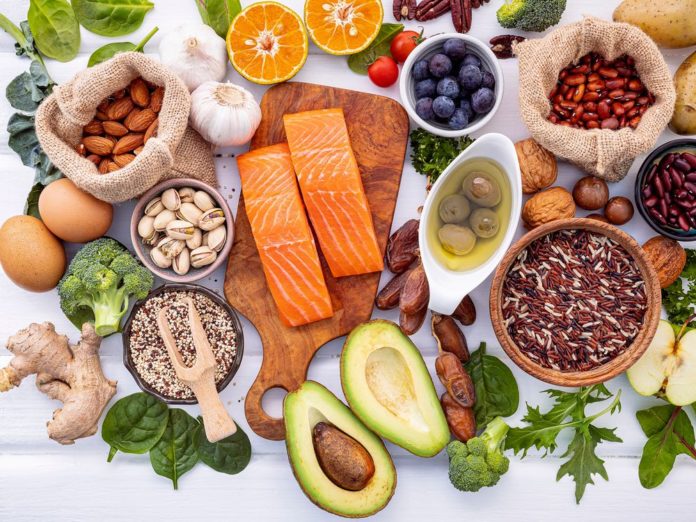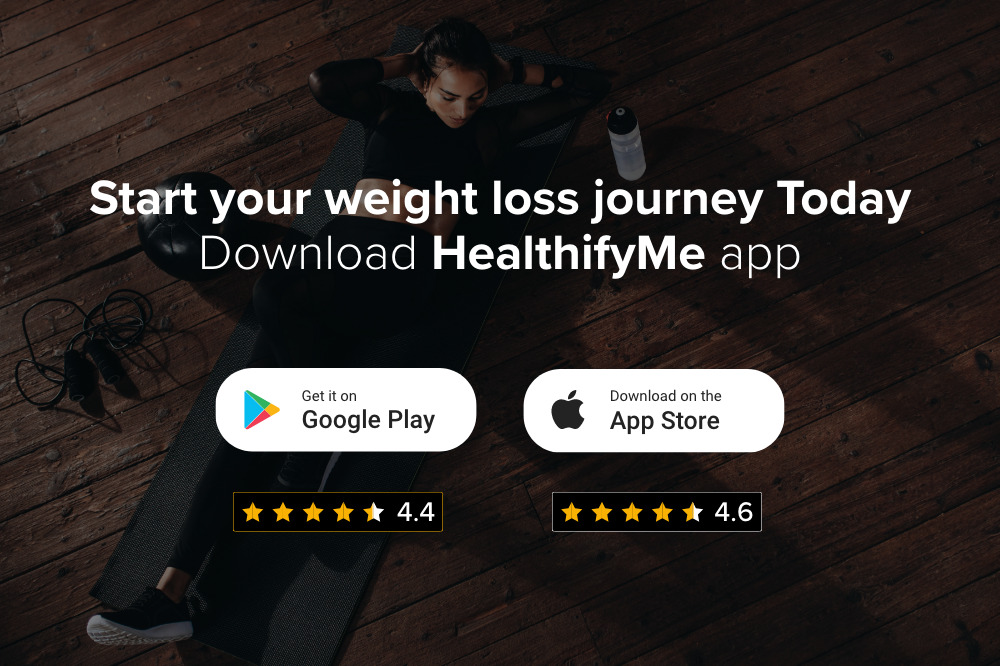Nutritionists recommend high protein diets for reducing and managing obesity by improving body weight management. For every 1 kg of body weight, the recommended quantity is 0.08- 1g grams of protein. However, age and health parameters can change the intake. Protein helps build tissues and muscle strength, oxygenates food, helps in regulating hormones and enzyme synthesis.
Therefore, protein is an essential nutrient in your diet if you’re trying to lose those extra inches. In addition, high protein foods make the process of weight loss easier due to the macronutrient’s effect on your satiety levels and metabolism.
Everything you should know about High Protein Foods
Proteins are the building blocks of our bodies. It is a vital macronutrient that plays a crucial role in almost all bodily functions. As a result, it is an essential dietary nutrient for a healthy life. In addition, it plays a significant part in post-workout recovery.
Proteins and amino acids are primarily building blocks in our bodies. Protein works as cellular transporters and maintains fluid equilibrium. Thus, it highlights how essential this macronutrient is for us.
High Protein for Weight Loss
Studies have shown protein consumption to help you lose weight and belly fat while improving muscle mass and strength. It is also safe to say that a high-protein diets may help decrease blood pressure and the risk of heart diseases.
So, by substituting carbohydrates and fat with protein, you lower your appetite and increase multiple satiety hormones. It means that high protein foods help suppress your hunger hormones and thus, will make you feel satiated for a longer time.
That is how adding high protein foods to your diet can help you achieve healthy weight loss.
How Can High Protein Foods Help in Weight Loss?
Protein works in three significant areas that have direct weight-loss implications: satiety, lean mass, and body fat storage.
Satiety
Hunger is one of the most significant obstacles to weight loss. You are less inclined to stick to a nutrition or diet plan if you are always hungry. Compared to the other macronutrients, protein is the most satiating. Therefore, please include a high protein foods list for weight loss in your diet plan.
Higher protein intake boosts levels of the satiety (appetite-reducing) hormones. The satiety hormones are GLP-1, peptide YY, and cholecystokinin. These hormones increase while levels of the hunger hormone ghrelin lower.
Best Protein Food preserves lean mass
Building muscle mass is also influenced by your nutrition. Protein is the essential macronutrient for your muscle growth. It is broken down into amino acids by the body, which our body needs to make muscle.
And thanks to high protein foods to eat, there are several weight-loss benefits. High protein diets support the preservation of lean body mass, curb hunger pangs and keep you strong enough to carry on with an active and fit lifestyle.
Protein does not easily convert to Fat
Protein does not convert to body fat because of proteins’ unique metabolism. However, there are instances when you eat more calories than you burn. Therefore, limiting the amount of surplus energy (i.e. calories) stored as fat is critical. Overeating protein leads to far less stored body fat during weight loss than overeating carbohydrates.
Best Protein-Rich Foods
Allow yourself a week to get used to the high protein in your diet. For this, you should gradually increase your protein intake. Remember that calories still matter. When it comes to protein, you’ll want to make wise decisions.
High protein foods to include in daily diet
We will help you pick out some of the best non-vegetarian, vegetarian and vegan protein sources you can quickly rustle up.
High Protein Vegan Foods
1. Rajma
Rajma/ kidney beans are always an economical source of protein. In addition, one can prepare kidney beans in many ways. Thus, it makes them a very flexible item in your pantry. Kidney beans also have a high fibre content.
They contain a significant quantity of resistant starch, supporting weight loss. They’re also high in fibre, which helps to regulate blood sugar levels and enhance intestinal health.
You can cook them into a curry, use them in salads, or even make Tikkis out of it. Perfect high protein ingredient to compliment your weight loss plan.
2. Corn
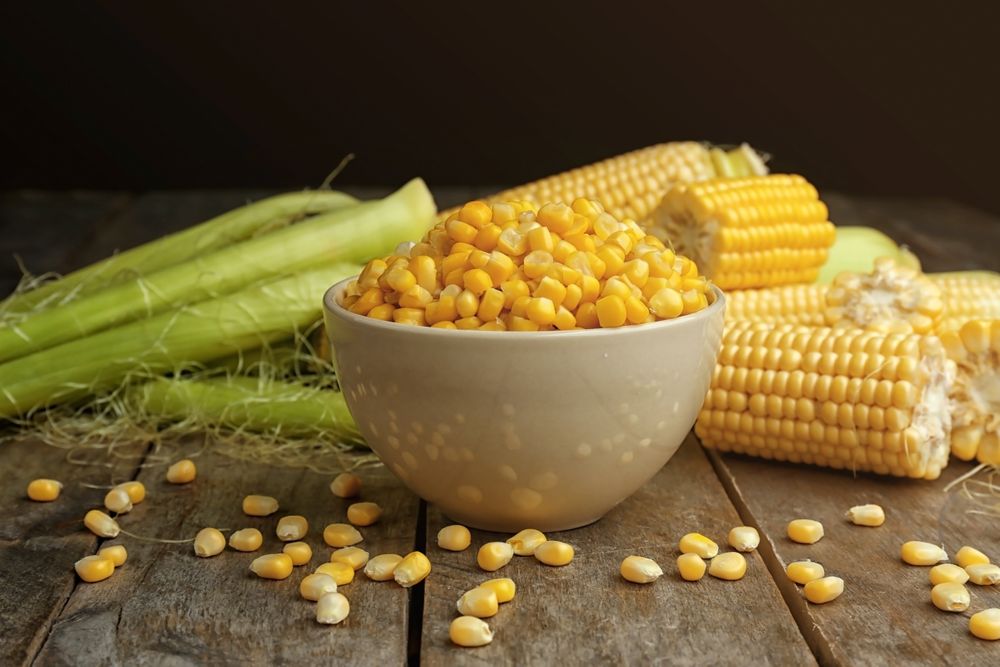
Corn is high in protein and has a moderate fibre content.
100 grams of corn contains 3.2 grams of protein. Despite its sugar content, sweet corn is not a high-glycemic food. Instead, it rates moderate to medium on the glycemic index (GI).
You can prepare it in various ways. For example, dried corns can be popped and made into popcorn. Fresh corn makes salads or sabzis, which are great high protein food.
3. Broccoli
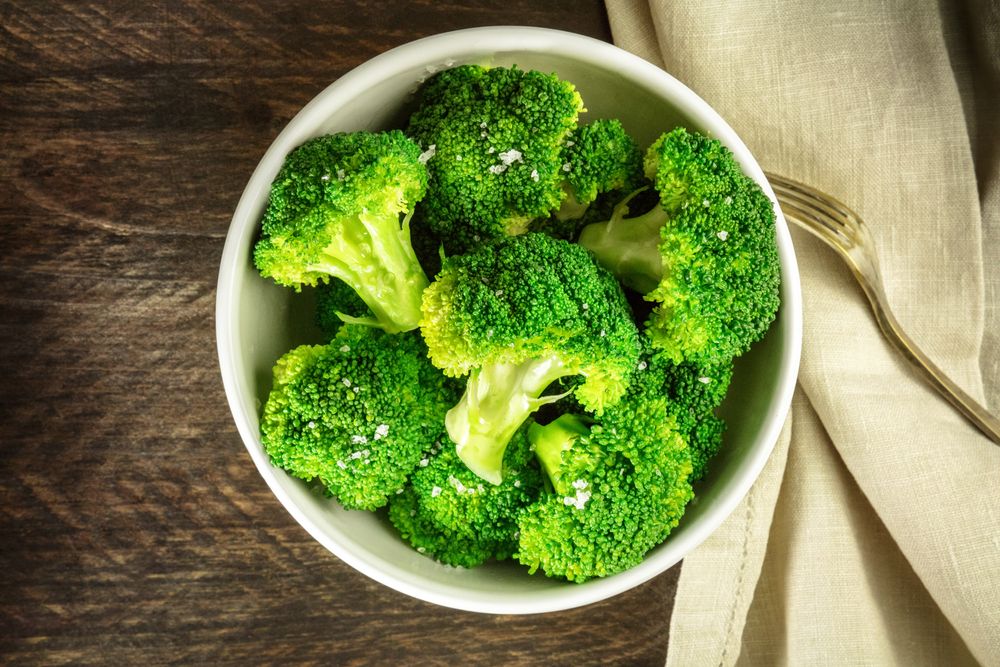
Broccoli, similar to cabbage and cauliflower, is a cruciferous vegetable.
Broccolis are well-known for their health benefits. In addition, they are a great source of protein for people on a plant-based diet. Furthermore, they are rich in fibre, vitamin C, vitamin K, iron, potassium, and other minerals.
This green veggie may be eaten raw or cooked, make a sabzi out of it or add it into your stir fry.
4. Cauliflower
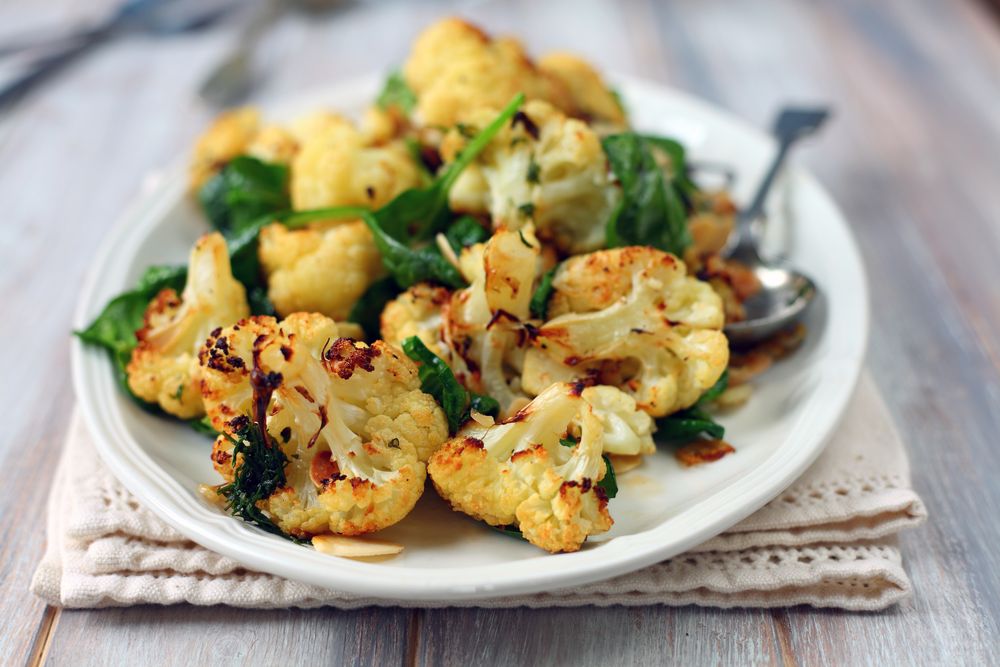
Cauliflowers belong to the cruciferous family and are a great source of protein.
In addition, cauliflowers are rich in antioxidants and high in fibre. Due to such a great nutrient profile, this veggie can also help you prevent heart diseases.
Cauliflower could also be eaten raw, baked, roasted, steamed, or sautéed and incorporated into various cuisines.
It’s also highly adaptable and can substitute for some grains. For example, use cauliflower mash or rice to add a low carb touch to pizza crusts, rice meals, veggie mashes, tortillas, and pasta recipes.
5. Oats
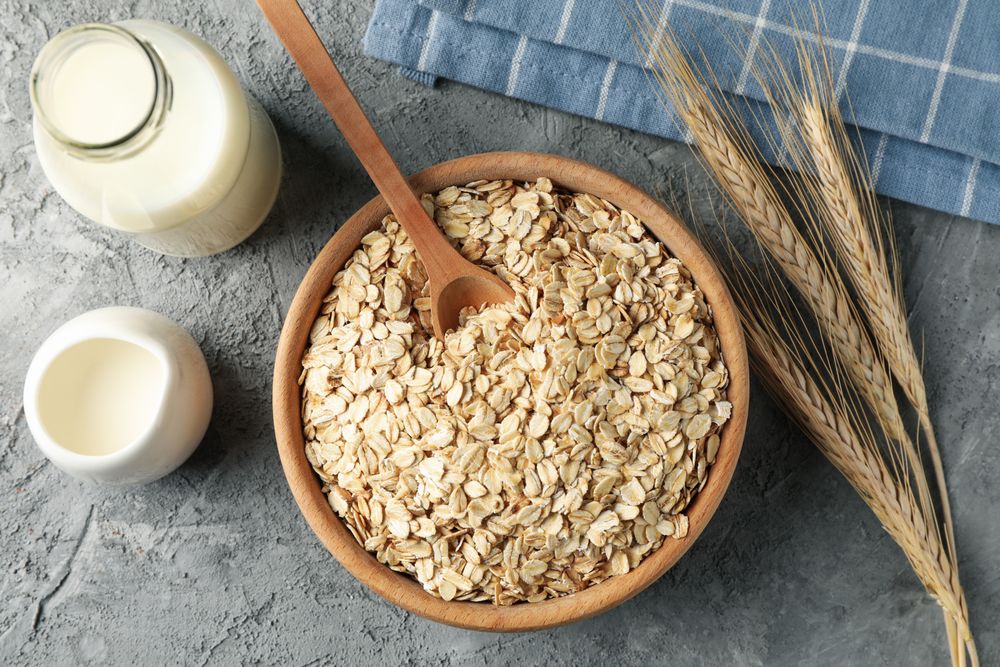
Oats are a source of good quality protein, making them a great addition to your weight loss breakfast or snack option.
Unfortunately, they are also high in complex carbs. However, raw oats are super quick to make, and you can add flavour to them with a range of healthy additions such as fruits and nuts.
Be careful of the packed-sweetened oats available in the stores, though!
6. Tempeh
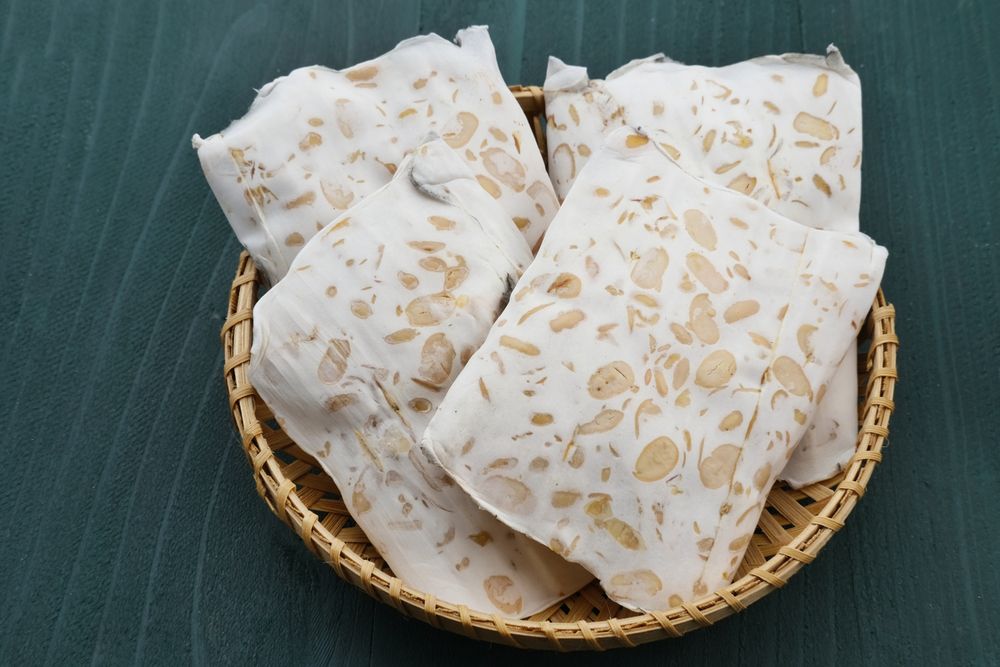
Tempeh, like tofu, is made from fermented soybeans. It does, however, contain more protein than tofu. Tempeh is a flexible ingredient with several health advantages.
Tempeh contains protein, iron, manganese, phosphorus, magnesium, and calcium. It also has a low carbohydrate and salt content.
In addition, tempeh provides probiotics, which may support the promotion of gut health and the possible reduction of inflammation. Thus, in addition to being a high protein food for vegans and vegetarians, it also assists in overall health and weight loss.
Tempeh may be challenging to find, but it is available in certain supermarkets in the refrigerated vegetarian department.
7. Legumes and pulses
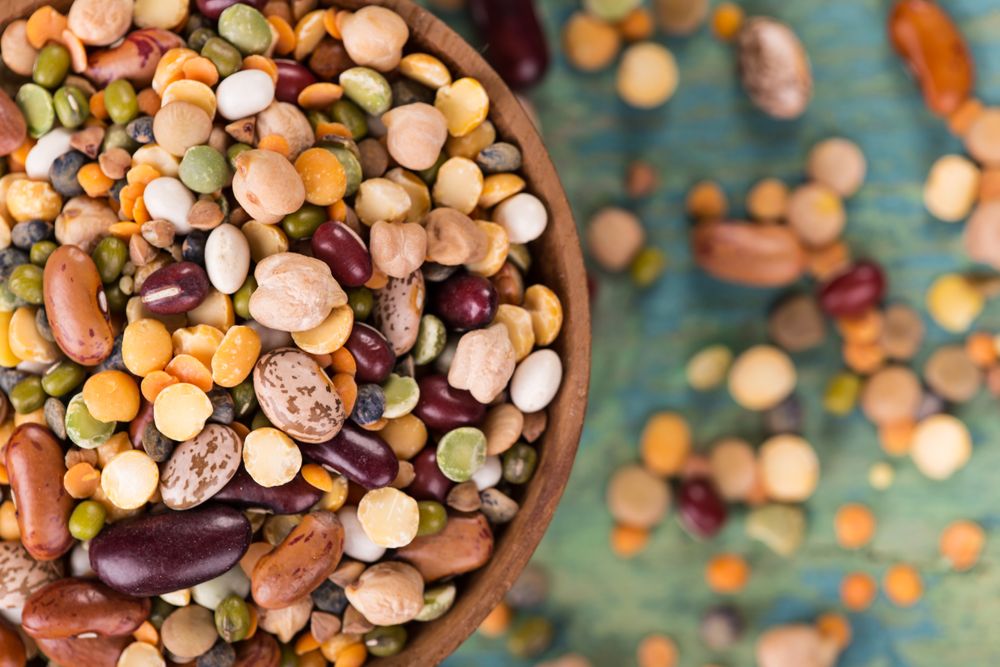
Legumes are not only a high protein food, but it also contains high fibre. Moreover, because they may be highly hearty, they are a suitable choice as an element of a weight loss diet.
Pulses like mung beans can add crunch and taste of soups and salads. In addition, dietitians advice using mung beans as a source of high protein in weight loss diets.
Make chillas or Tikki with legumes/pulses if you want to spice things up. It is a nutritious, high protein vegetarian/ vegan food addition for weight loss.
8. Bajra
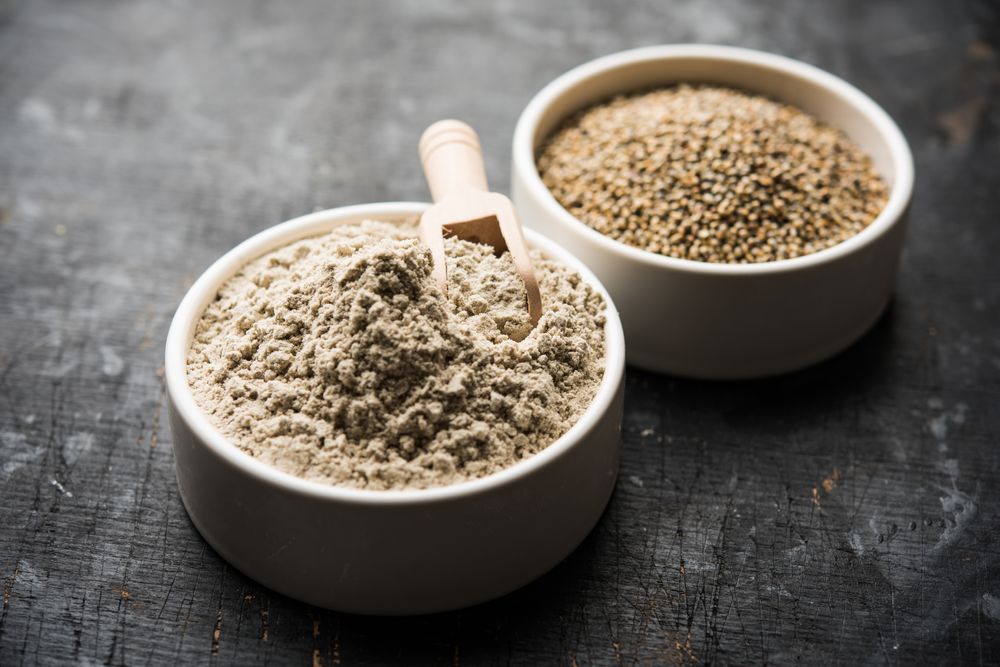
Bajra comes in various hues, including white, yellow, grey, brown, and bluish-purple.
They are a staple millet in our country, and people usually prepare it as a cereal grain. They can also be finely crushed and used as flour. You can use this to prepare rotis. Bajra puffed- grains are also available, and they make for a fun, high protein snack.
Bajra is a high-nutrient source of protein, carbohydrates, vitamins, minerals, and beneficial plant compounds.
9. Quinoa
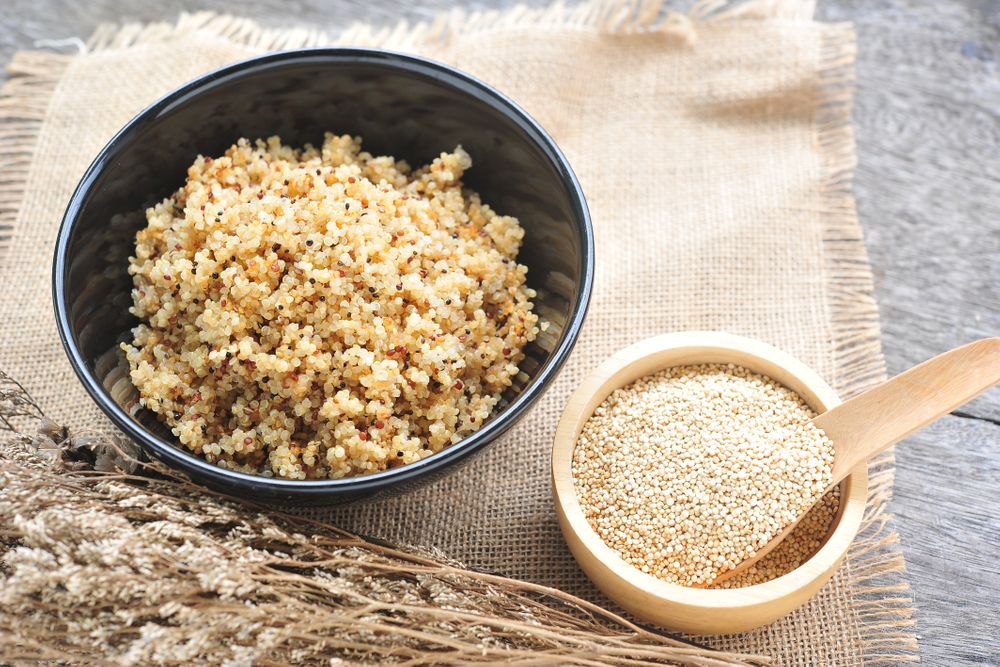
Quinoa is among the few complete vegetarian protein sources. One cup cooked has around 8gm of protein and 5gm of fibre.
Quinoa, contrary to some plant proteins, is a complete protein. That means it includes all nine essential amino acids that our bodies cannot produce independently. Therefore, it makes an ideal alternative to complete protein intake for vegetarians and vegans.
In addition to being a high protein food, quinoa is also rich in manganese, phosphorus, magnesium, folate, and vitamin B1.
They are also gluten-free and make an excellent option for gluten intolerance. With all its benefits, quinoa is sure to provide you with high protein and various micronutrients to assist your weight loss plan.
10. Almonds
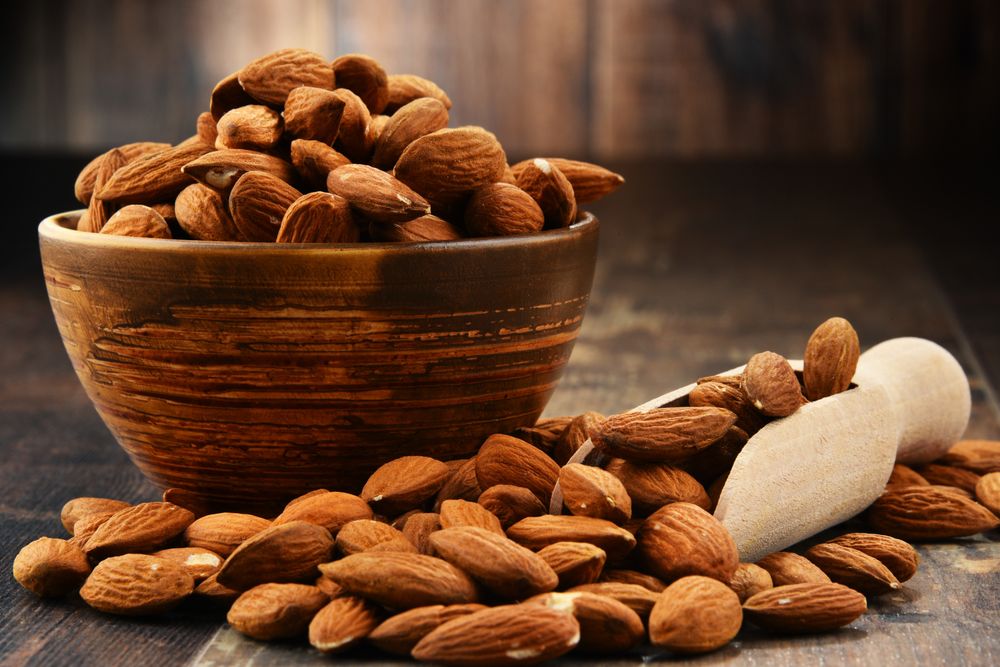
Nuts have a bad reputation for being loaded with calories. However, almonds can be a high protein snack for weight loss and a healthy heart with adequate consumption and portion control.
Almonds are abundant in antioxidants, which protect your cells from oxidative damage, a primary cause of ageing and disease.
In addition, even though almonds are significant in calories, they are rich in good fats and thus, have a protective effect on the heart.
11. Tofu
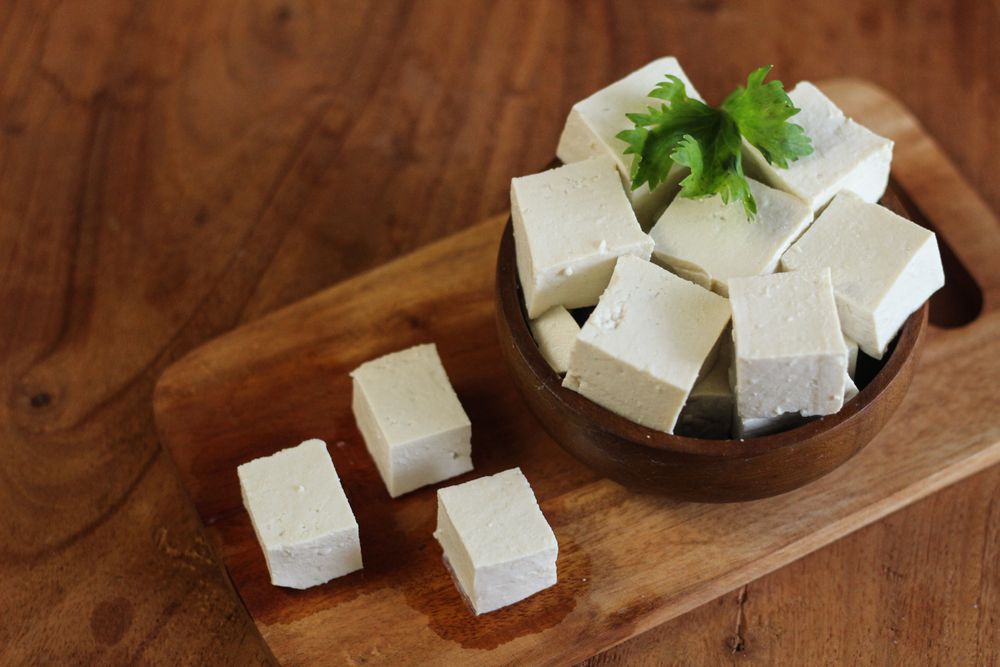
Tofu has a low-calorie count but is high in protein. Furthermore, all soy-based products include isoflavones, which provide a range of health perks.
Tofu is a high protein food that can help you with weight loss.
12. Flax seeds
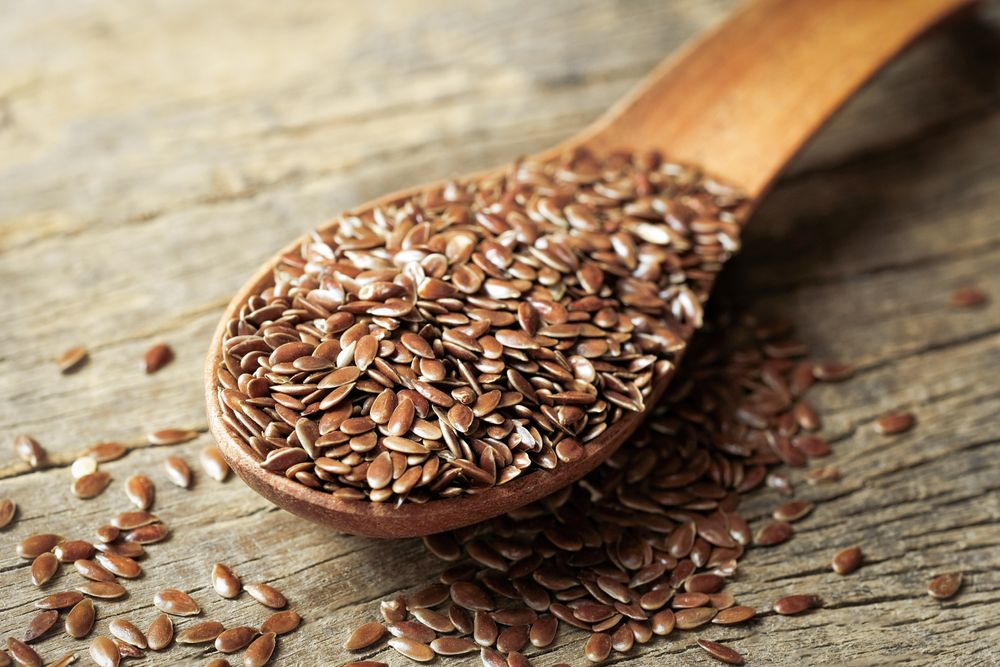
Flax seeds are high in fibre and a good source of protein.
They’re also high in healthy fat and one of the most acceptable sources of heart-friendly omega-3 fatty acids from plants. In addition, flax seeds contain soluble fibre, contributing to weight loss by lowering appetite and cravings.
13. Chickpeas
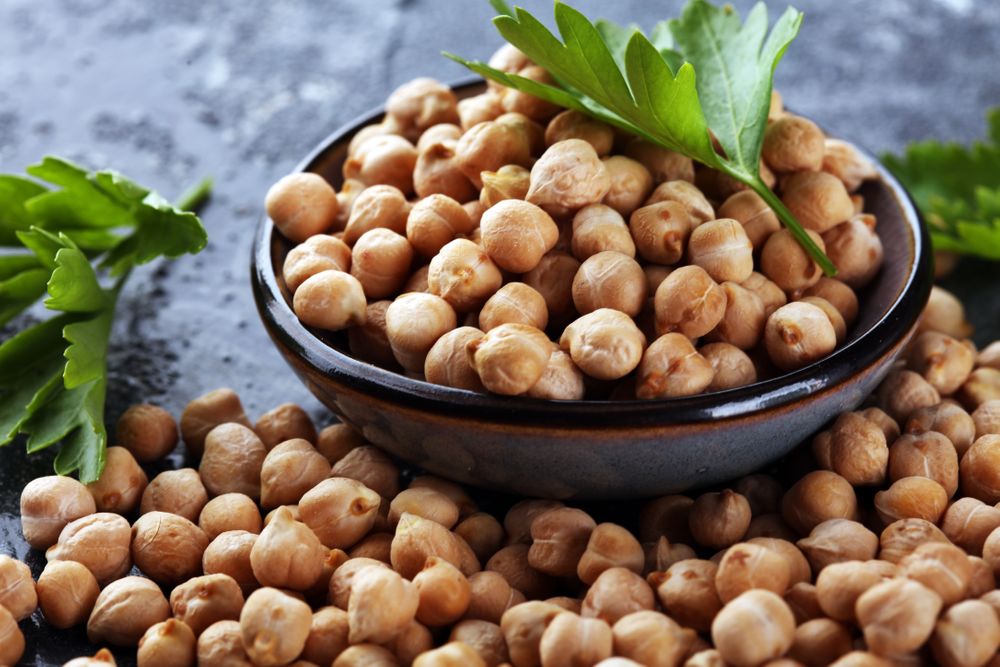
The nutty flavour and coarse texture of chickpeas complement many dishes and condiments. In addition, chickpeas, a rich source of vitamins, minerals, and fibre, may provide several health advantages, including weight loss.
Furthermore, chickpea is high in protein and substitutes for meat in various vegetarian and vegan meals.
14. Pistachios
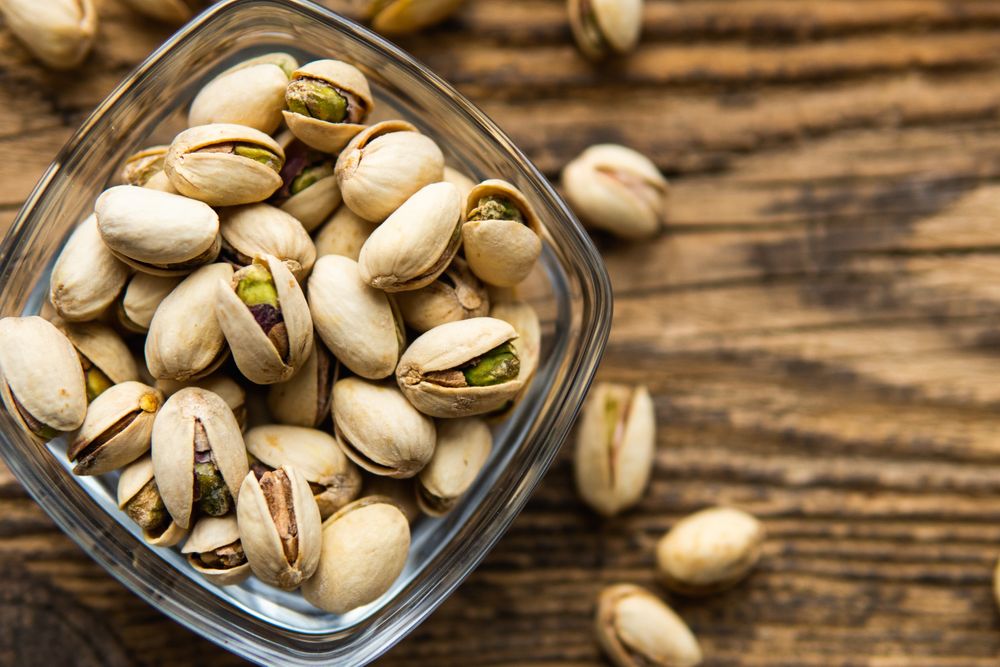
These are a good source of protein, fibre, and antioxidants. Pistachios are lower in calories and higher in protein than some other nuts.
Furthermore, their essential amino acid concentration is more significant than any other nut.
15. Spirulina
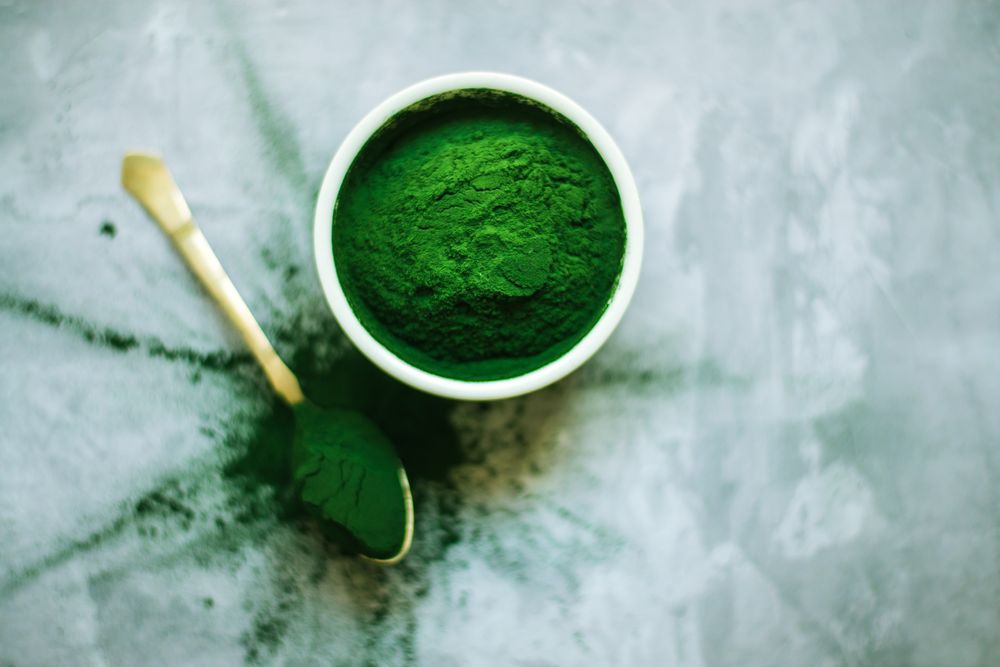
Spirulina is a blue-green algae that can thrive in both saline and freshwater. It is rich in antioxidants and anti-inflammatory compounds.
In addition, it is an excellent source of protein, increases satiety and helps in weight loss. Spirulina’s primary active component is phycocyanin.
High Protein Vegetarian Foods
A vegetarian diet is very similar to vegan food, except it includes all milk and milk products.
1. Milk
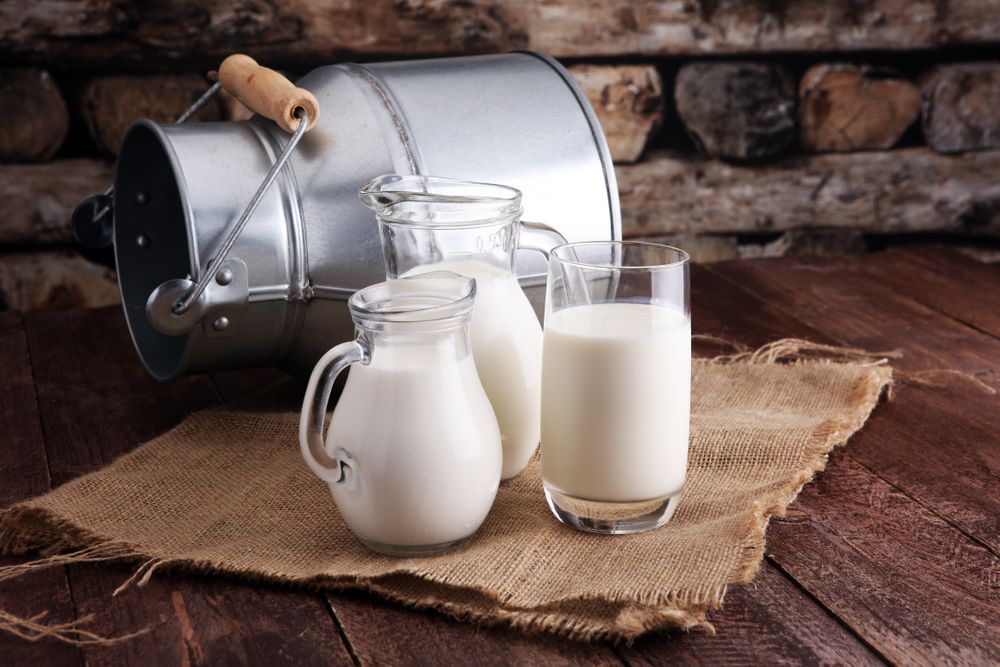
Cows, sheep, camels, goats, and other animals are milk sources.
The healthiness of milk is dependent on the individual and the type of milk consumed. For example, pasteurised milk is high in protein, low in fat, and devoid of unnecessary additives can be beneficial.
On the other hand, flavoured-sweetened milk contains additives and preservatives that may not be good for health.
Milk is an excellent source of protein. In addition to being high in protein, it is also high in calcium and vitamin D. These micronutrients are necessary for bone and brain function. Both are necessary for our body and will help prevent osteoporosis.
2. Greek Yogurt
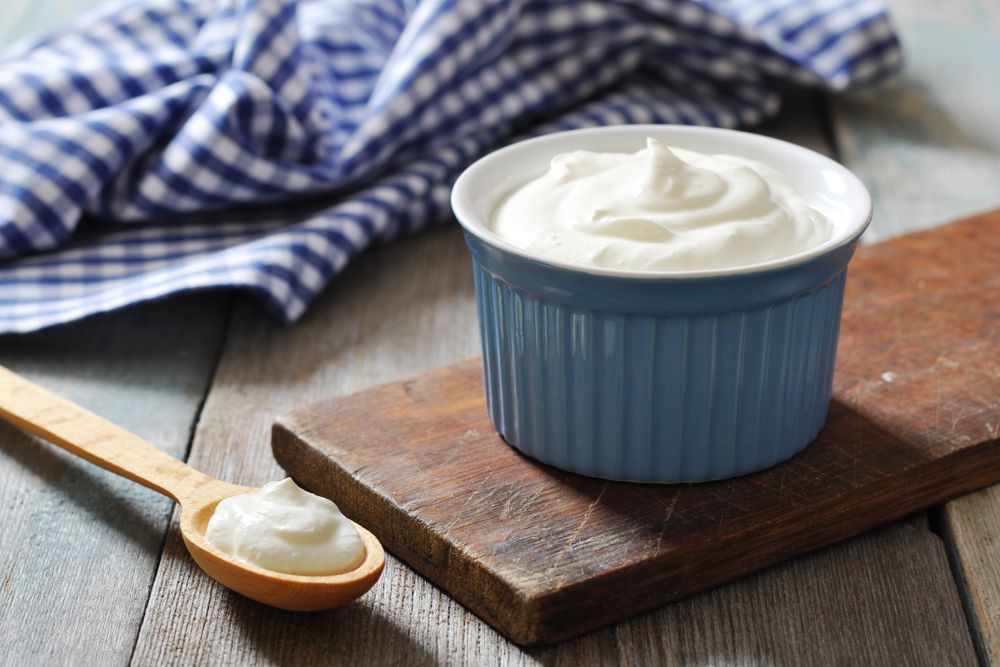
Yoghurt is one of the most prominent fermented dairy products available in the market, prepared by infusing milk with live bacteria.
People have been consuming it for years as a meal or snack and a base for curries and sweets. Furthermore, yoghurt includes good bacteria and may serve as a probiotic, delivering many health advantages in addition to plain milk.
Most yoghurt is white and thick, although many commercial types are coloured artificially. That is why Greek yoghurt, plain white yoghurt, makes the best choice. In addition, Greek yoghurt is a high-protein food. Because dry milk gets added to yoghurt during processing, the protein level of yoghurt can be greater than that of milk.
Probiotic bacteria included in live and active yoghurt cultures may help digestive health. As a result, probiotic yoghurt can enhance gut health, lower your risk of osteoporosis, and help you fight high blood pressure.
3. Paneer
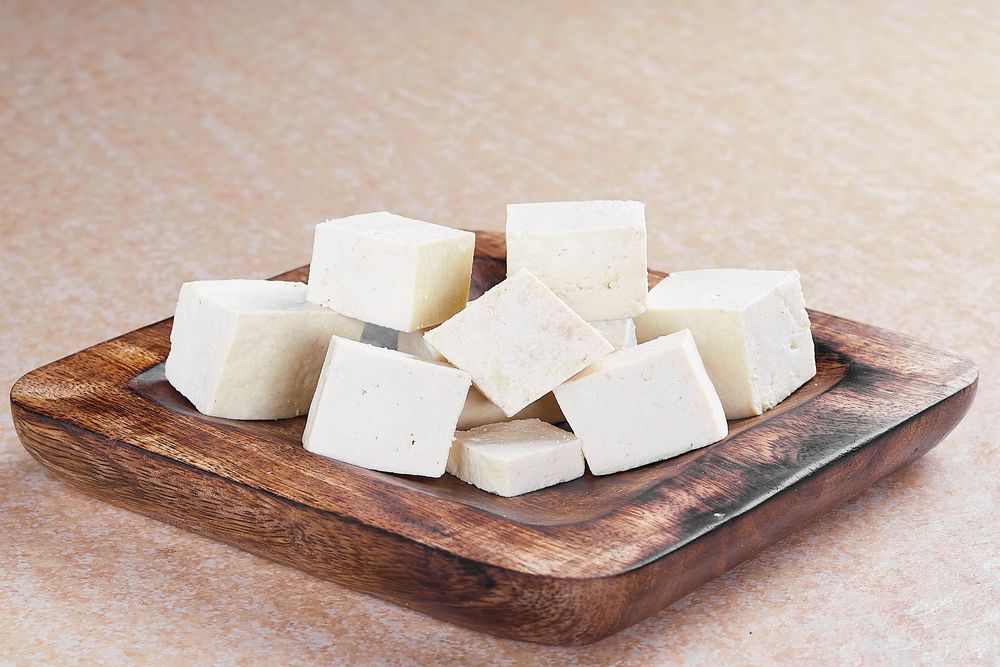
It is a fresh, unaged cheese prepared from curdled cow’s or buffalo’s milk with lemon juice or similar acid. Paneer or Indian cottage cheese has a high protein value and calcium content.
Therefore, it can help minimise the incidence of heart and bone diseases. As a result, paneer becomes a great high protein food for vegetarians.
Best Protein Non-Vegetarian Foods
1. Chicken Breast
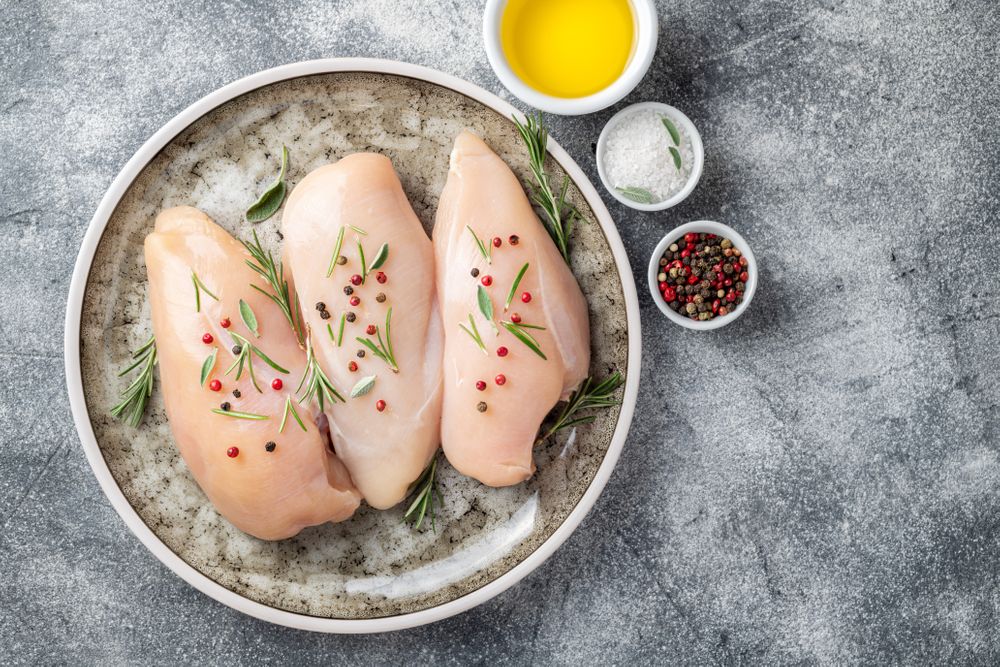
It’s one of the most sought after sources of protein for non-vegetarians. It is effortless to cook. One can pan fry it or grill it with a vegetable side dish.
Rich with potassium, fibre and no carbs, chicken breast pieces of 100 grams contain 22.5 grams of protein.
The calorie count is 165, and 80% of calories comes from protein. It is terrific for weight loss since the fat content is negligible.
2. Egg Whites
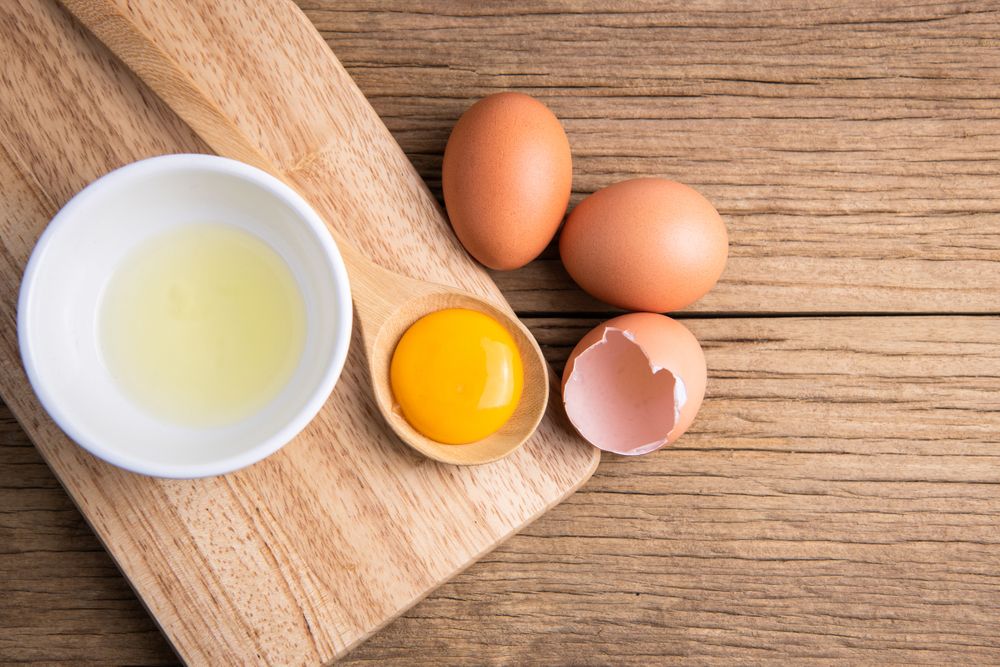
Cooked egg whites are excellent protein sources because they have very low fat and carbohydrates content. For example, 1 egg contains 6 grams of net protein and has a low-calorie value of 55.
It also contains sodium, potassium and vitamins, making it an ideal food for weight loss.
Nutritionists recommend up to 3-4 egg whites a day to meet one’s daily protein requirement based on age and other lifestyle conditions.
3. Prawns
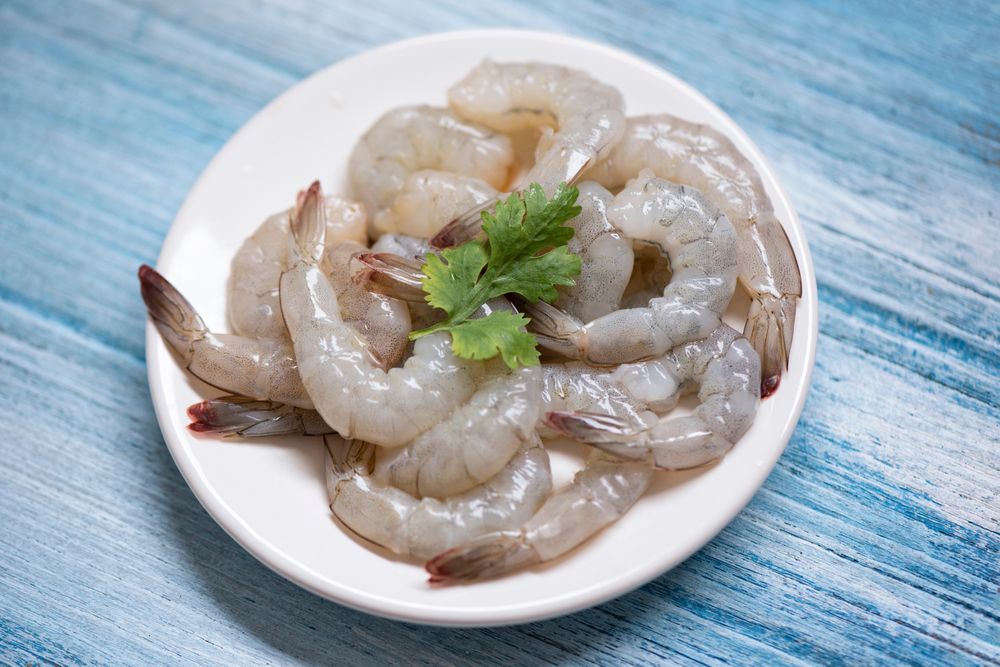
A delicacy among many cuisines, prawns are tasty and easy to cook.
For example, 100 grams of dry, roasted or pan-fried prawns contain only 99 calories and have 19 grams of protein content.
Additionally, they are rich in zinc, magnesium and phosphorus.
Takeaway
Many of these protein sources also provide extra nutrients beneficial to overall health. You can source protein from a wide range of foods if you are aware. And it’s safe to say that vegans and vegetarians would never run out of high-protein food choices.
High Protein Foods – Frequently Asked Questions
Q1. What food is highest in protein?
A. Generally, meats like chicken, fish, lamb or seafood have the highest protein content. One large egg has 6 g of protein. If you are a vegetarian, numerous foods like beans, almonds and yoghurt are rich in protein.
Q2. Which fruit has the most protein?
A. Guava is the fruit with the most protein content in it. A cup of guava has a whopping 4.6 g of protein. Since this is a tropical fruit, it is also rich in vitamin C and fibre.
Q3. What are the top 10 foods that are high in protein?
A. The top 10 foods rich in protein would be fish, prawns or other seafood, skinless chicken, lean mutton, skimmed or low-fat milk, skimmed or low-fat yoghurt, fat-free or low-fat cheese, eggs, beans and almonds.
Q4. What foods are high in protein besides meat?
A. There are several foods other than meat that are high in protein. For example, suppose you follow a vegan diet: rajma, corn, oats, tempeh, cauliflower, legumes, bajra, quinoa, almonds, etc. In addition, there is milk, yoghurt, paneer, eggs, and cheese if you are a vegetarian.
Q5. Which is the highest protein vegetable?
A. Green peas have the highest protein content among vegetables. A cup of peas has 8.6 g of protein. Second is spinach, a green leafy vegetable with 5.2 g of protein per cup.
Q6. How can I get 50 grams of protein a day?
A. If you eat eggs, start the day by having two eggs giving you 12 g of protein. If not, just substitute this with 1 cup of Greek yoghurt and some berries to provide you with 13 g of protein. For lunch, go with 1 cup quinoa with 8 g protein, 1 cup spinach with 5.2 g protein, and half cup black beans with 7.5 g protein. For dinner, cook 1 cup brown rice with 5.5 g protein, 1 cup broccoli with 2.5 g protein and half cup chickpeas with 7.5 g protein. That should give you 49.2 grams of protein. Finally, snack on a banana for 1.5 g per piece and some flax seeds for 1 g per tablespoon, and you’ve crossed 50 g protein.
Q7. Are two eggs a day enough protein?
A. Two eggs give you only 12 g of protein which isn’t enough for a human adult. However, according to the Dietary Reference Intake report for macronutrients, the average sedentary man should have approximately 56 g of protein per day. The average sedentary woman should have around 46 g. So, plan your diet accordingly.
Q8. Which protein food is best for weight loss?
A. Soy protein is considered best for weight loss because it contains essential amino acids. In addition, it is a plant-based protein which means you can incorporate it into a vegan diet.
Q9. Can you lose weight by eating high protein?
A. Yes, eating a protein-rich diet keeps you full for longer, thus regulating appetite. Protein also helps build muscle in the body, and muscle burns more fat than any other tissue. So, eating protein can help you burn fat.
Q10. What foods are high in protein but low in fat?
A. For non-vegetarians- white-fleshed fish, skinless chicken breast, and lean mutton are good high protein and low-fat sources. For vegetarians- low-fat milk, low-fat Greek yoghurt. Egg whites are an excellent option too. For the vegan diet- beans, lite tofu and almonds are perfect.
Q11. Which vegan food has the most protein?
A. Soy products such as tempeh, edamame and tofu are entirely plant-based and have a significant amount of protein in them.
Q12. What vegan food is high in protein and low in carbs?
A. Soy is a vegan plant-based food item abundant in protein and low in carbs and fats. Soy products like tofu, edamame and tempeh are great for the vegan diet.
Q13. How can I get 75 grams of protein a day vegetarian?
A. If you eat eggs, start the day by having two eggs giving you 12 g of protein. If not, just substitute this with 1 cup of Greek yoghurt and some berries to provide you with 13 g of protein. For lunch, go with 1 cup quinoa with 8 g protein, 1 cup spinach with 5.2 g protein, and 1 cup black beans with 15 g protein. For dinner, cook 1 cup brown rice with 5.5 g protein, 1 cup broccoli with 2.5 g protein and 1 cup chickpeas with 15 g protein. That should give you 49.2 grams of protein. Finally, snack on two bananas for 3 g per piece and some ten tablespoon flax seeds pudding, and you’ve got 80 g protein.


























